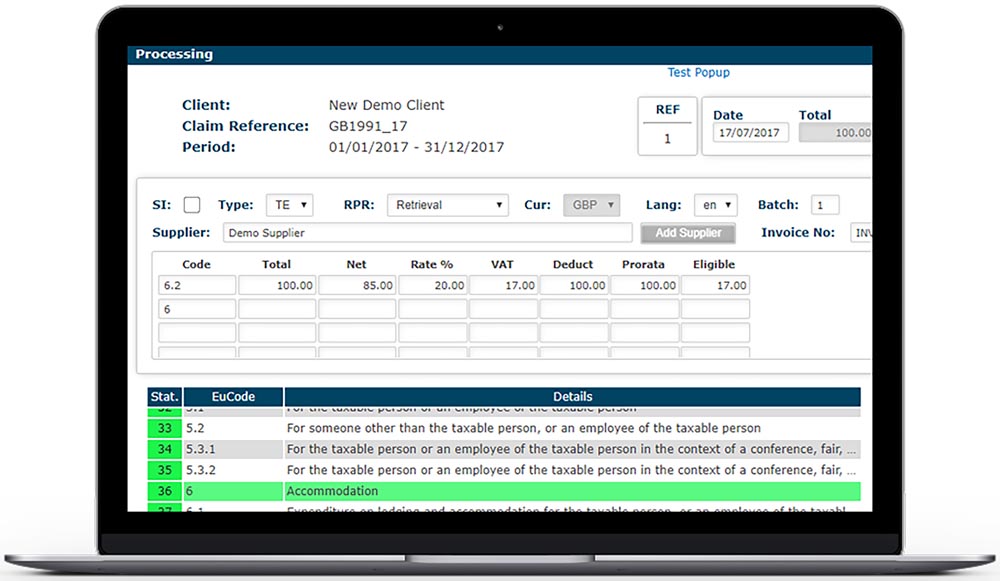
Whether you have already embarked on an ambitious venture and are growing quickly, or are about to start a new business, VAT needs to be given a high priority. There are many pitfalls that can be encountered and these need to be managed.
1. What, to who, and where am I selling?
VAT basics are crucial and where most errors are found. It is key to understand and categorise what you are selling, who is buying and where they are based. Things to consider include:
- Are you selling goods or services?
- Is the customer an individual or a business?
- Where are goods moving from and to?
- Where is your customer located?
- Does the supply attract VAT?
- Are you supplying one item or a package?
For those just starting out, getting to grips with the basics will allow you to determine if you have to register for VAT.
As a default, most goods and services when supplied in the UK attract VAT at the standard rate, currently 20%. When considering trade within the UK, there are a number of VAT reliefs available, but these are quite tightly defined and often need careful analysis.
Selling abroad creates another level of uncertainty, and you will need to consider whether your customer is an individual or in business and the place of supply.
The general rule for (business to business) cross border services is that the place of supply is where the recipient is located and therefore outside the scope of UK VAT, but the customer is required to self-account for the VAT in its country.
2. Pricing
VAT represents a 20% additional charge for some customers, and not just individuals. VAT is often a cost for those that have exempt sales or undertake activities which are freely given or not in ‘business’, such as charities, banks, insurance companies and property companies.
To remain competitive and not to reduce your profit margin unnecessarily, you should consider at the outset of a new service or product line the reliefs available and be clear about your pricing.
Care should also be taken when advertising prices and when agreeing contracts to ensure that they provide for the addition of VAT even if you do not think your service is subject to VAT. The ability to go back and recover VAT undercharged from business customers in error at a later date is essential in mitigating larger exposures.
3. International trade
Subject to any changes as a result of Brexit, the following issues need to be considered:
- Do you need to register overseas? If you sell items to individuals or consumers from the UK or if you, or goods owned by you, are physically present in a different country you may be required to register.
- Do you trade through an online platform?
- Do not assume that the rules in the UK are the same as in each EU country
- Is the Duty tariff classification on imported goods into the UK correct (possibly leading to Duty overpayments)?
- Do you have adequate export evidence which is essential for zero-rating goods moving outside the EU?
- Have you completed statistical declarations such as EC Sales Lists for goods and services?
4. Managing risk: system and controls to avoid penalty
VAT accounting procedures and controls do not always keep up with the rate of growth of the business and, as HMRC becomes more interested in the business, the possibility of larger compliance errors increases and inherent inaccuracies can surface.
Controls over the systems may well be missing and the exposure to HMRC assessments and penalties can be more acute for medium-size businesses. Reviews by VAT specialists, additional staff, or outsourcing of reporting are all options which could be considered.
5. Dealing with HMRC
Routine VAT audits by HMRC do not usually require VAT specialist assistance. However, there are occasions when a degree of sensitivity in how sales and activities are described is needed from a VAT perspective. VAT is, after all, an inherently interpretive tax as demonstrated by so many court decisions since its inception in 1973. If you are concerned about any issue a VAT specialist should be consulted before entering into negotiations with officers. This ensures that technical matters are explained in the right way reducing the amount of follow up work and aggravation for all parties concerned.
It is also advisable for all HMRC decisions to be reviewed as these may not be right and may have wider implications for the business.
Finally, Making Tax Digital (MTD) requires a mention. The legal obligation to digitally link VAT return information through to HMRC’s system with compatible accounting software gets closer and closer. This will be live in April 2019. Whilst initially businesses will only have to ensure compatibility in filing returns digitally, they will also have more stretching obligations to adhere to from April 2020. This will include digital links between spreadsheets and companies/divisions within a group (or VAT group). This should be embedded in any VAT return process.
Rupert Moyle is a Partner and Head of VAT and Duty at Kreston Reeves.






